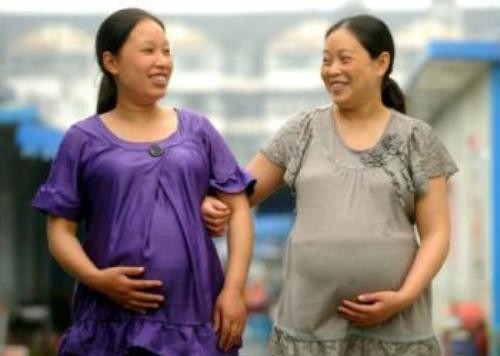After China's restructuring of its one-child policy November last year, the second-child baby boom that ensued is now teeming many of the country's hospitals with expectant moms.
In Beijing Obstetrics and Gynecology Hospital, reservations for pregnant women nearing their due date have been fully booked, according to the Beijing Morning Post.
The statistics on newborn babies in China's capital of Beijing is expected to surge up to 50,000 annually after the government restructured the 1979-introduced one-child policy in November 2013. The Standing Committee of the National People's Congress agreed to allow couples to have a second child, only if either parent is an only child.
Close to one year after the revised one-child policy, most OB departments in Beijing's hospitals face an imbalanced patient-staff ratio as well as insufficient equipment, while the numbers of expectant women continue to climb.
Even AAA hospitals in the capital city are facing the strain, as the need for obstetric beds overstretched to 110 percent. Additional temporary beds in many hospitals and medical facilities are required.
However, Beijing is not alone in dealing with limited resources, reports say, because there are 29 other provinces that have also enacted the second-child policy since July 2014.
A forecasted 150 million couples residing in China have a single child. Ouf of this number, nearly 65 percent want a sibling for their only child, according to Zhai Zhenwu, dean at the School of Sociology and Population Studies in Renmin University of China.
According to Zhai, roughly 90 million babies are expected to be birthed in the next five years because of the second-child policy that has been implemented in China.



























